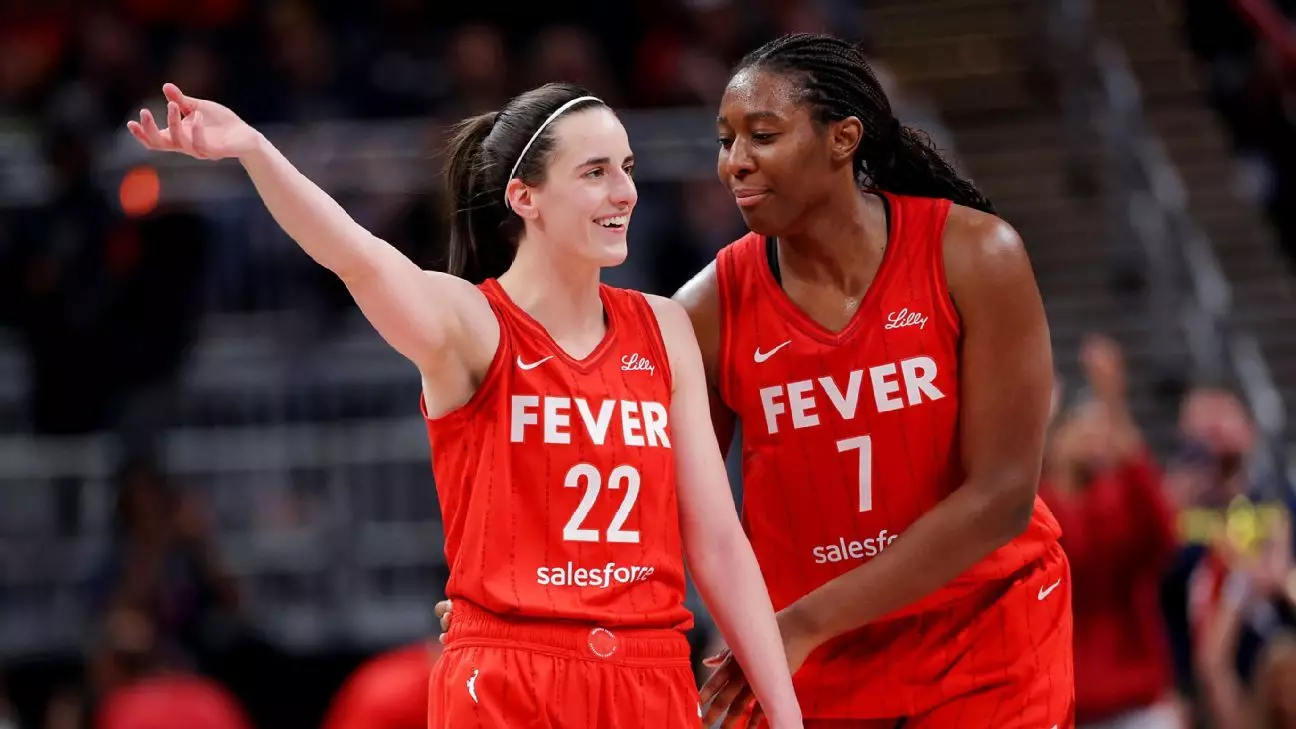In an era where sports often mirror societal divisions, the upcoming WNBA All-Star Game in Indianapolis offers a compelling counter-narrative. The fact that all three Indiana Fever All-Stars will be on the same team is not just a scheduling coincidence; it symbolizes a rare moment of unity amidst the ongoing competition. This convergence should be viewed as an opportunity to transcend the fragmented narratives that often dominate sports discourse. Rather than fixate on rivalries or individual accolades, we can embrace the idea that collective excellence is attainable when players prioritize shared goals over personal agendas.
This event underscores the importance of collaboration and mutual respect within a highly competitive environment. The captains, Caitlin Clark and Napheesa Collier, had the authority to assemble their teams and make strategic decisions, yet their choices reflect a broader desire to showcase the league’s talent and diversity. Clark’s selection of her Fever teammates Aliyah Boston and Kelsey Mitchell exemplifies a commitment to nurturing talent from her own club—a move that highlights the importance of fostering team chemistry and loyaltyeven within the context of individual achievement. These selections demonstrate that even in the high-stakes world of professional sports, participants recognize the value of unity for the greater good.
Strategic Leadership as a Reflection of Cultural Shifts
One of the most intriguing aspects of this All-Star draft is the decision to swap coaching assignments. Originally, Cheryl Reeve was designated to coach Team Clark, aligning her with the team boasting the best record, which makes sense from a competitive standpoint. However, the captains chose to switch Reeve’s role with Sandy Brondello, recognizing the importance of neutral leadership and fairness. This decision subtly signals a shift away from purely strategic or hierarchical paradigms towards a more community-oriented approach that values consistency, fairness, and shared responsibility.
The coaches’ swap signals an understanding that leadership should not be purely about winning but about setting a positive example and fostering an environment of trust. In broader societal terms, this reflects a growing acknowledgment that leadership, especially in progressive communities, needs to be rooted in equity and inclusiveness. It also illustrates that even in game settings, the principles of collaborative decision-making can prevail over individual ego or traditional power dynamics.
Celebrating Talent While Challenging the Status Quo
Both teams boast impressive rosters, but what stands out is the diversity of talent and the deliberate choices made by the captains. Clark’s picks show an appreciation for emerging stars like Sabrina Ionescu and Satou Sabally, while Collier emphasizes seasoned veterans such as Nneka Ogwumike and Kelsey Plum. Such selections reflect a nuanced understanding that progress in the league requires both fresh talent and experienced leadership.
However, the draft process also hints at underlying tensions and considerations about competitive fairness. The fact that Clark offered Sabally in exchange for Stewart, and the subsequent rejection of Boston for Stewart, reveals a subtle struggle for dominance or control over the narrative. It raises questions about how personal relationships, team loyalty, and strategic moves influence decisions—even in an exhibition game. These dynamics underscore that progress isn’t always linear or purely altruistic; it often involves navigating complex social terrains, balancing individual ambitions with collective aspirations.
The Broader Implication: A Catalyst for Change
The culmination of these decisions, the event, and the players involved serve as more than just entertainment. They act as a reflection of ongoing efforts to redefine what sports can be in society. The WNBA has historically championed diversity, inclusion, and progressive values, and this All-Star Game exemplifies that ethos. It demonstrates that the league’s athletes are aware of their influence and are willing to use their platform to advocate for unity, fairness, and progress.
By emphasizing collaboration over rivalry, leadership over dominance, and diversity over uniformity, the league is subtly challenging broader societal narratives. This event encourages fans and observers alike to see the potential for harmony in sectors often marked by discord. It reinforces the idea that greatness is not just about individual prowess but about collective effort—an insight that resonates well beyond the basketball court. The game, thus, can be viewed as a microcosm of society’s future, advocating for a world where cooperation and mutual respect drive sustainable progress.

Leave a Reply